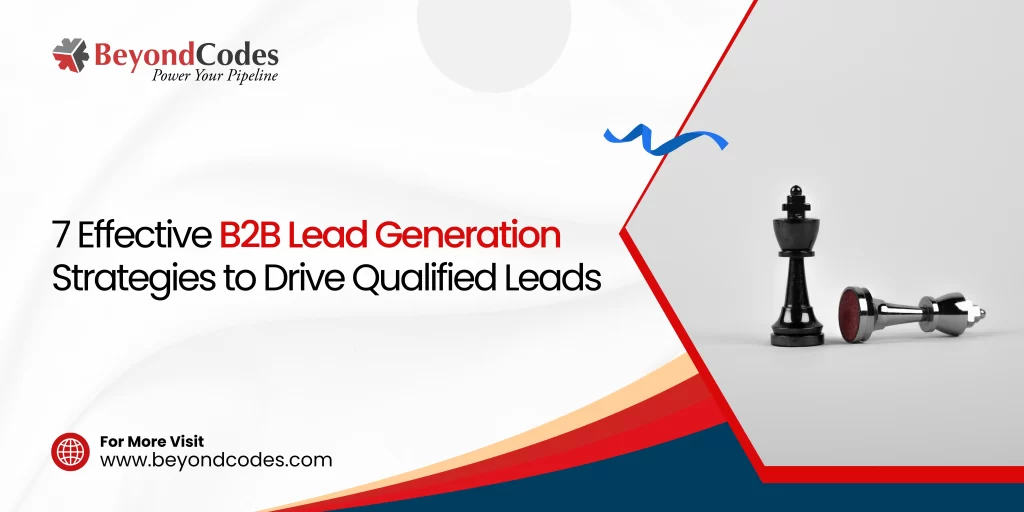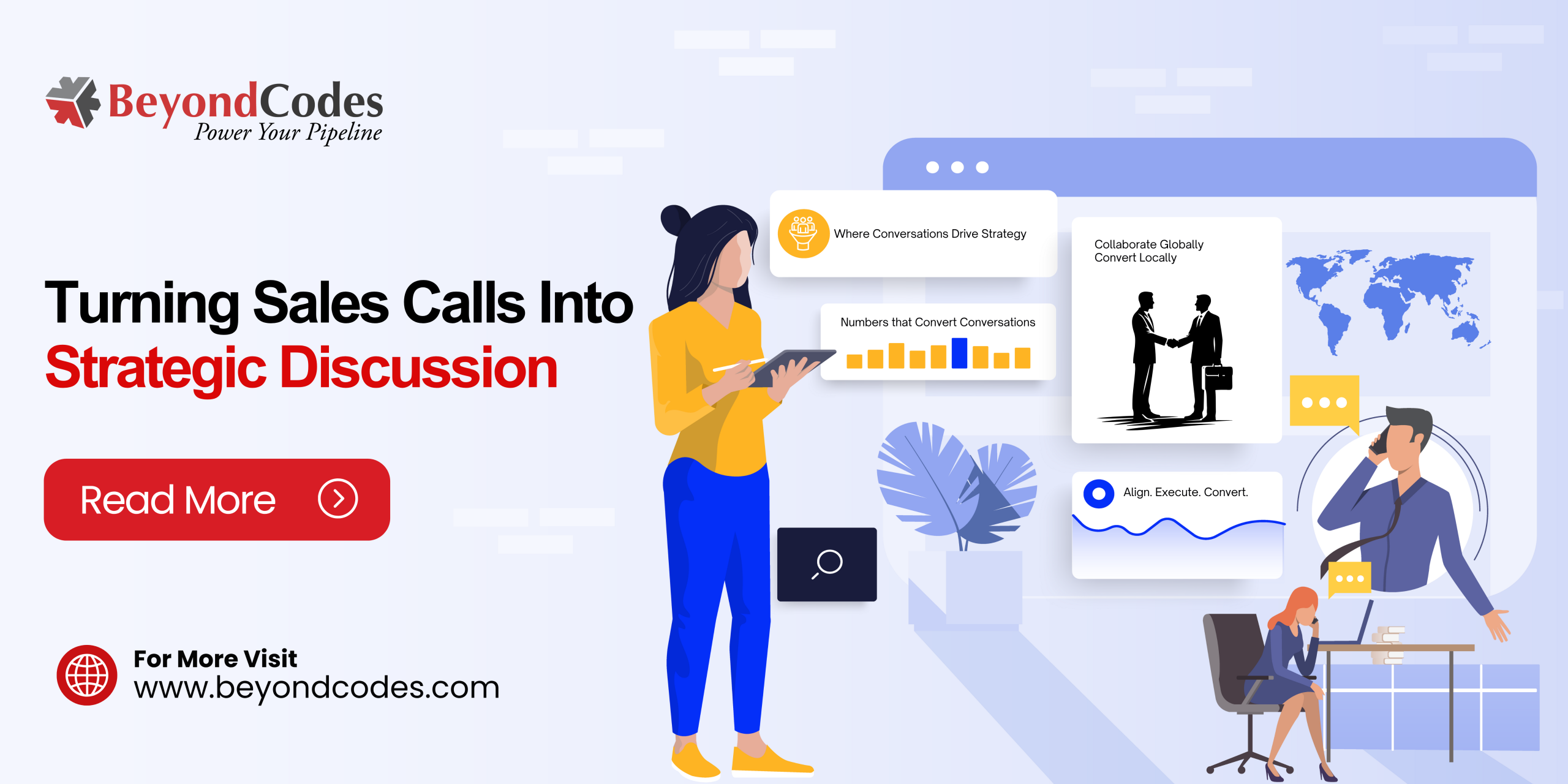Searching for the right B2B sales leads isn’t an easy task. It’s about attracting prospects who align with your business solutions to power your sales pipeline. To secure qualified leads, businesses must target key decision-makers likely to become long-term clients. Businesses nowadays adopt customized strategies to ensure quality over quantity while generating leads.
In this blog, we’ll explore seven powerful B2B lead generation strategies that can help you reach and engage the right prospects. Whether refining your approach or looking to scale, these sales strategies will provide actionable steps for driving business success.
1. Content Marketing with a Focus on Value
Content marketing is a cornerstone of B2B lead generation. It allows you to position your brand as an industry expert while delivering value to potential clients. You can attract decision-makers seeking solutions to their business challenges by offering informative and engaging content.
Key Elements of Effective Content Marketing:
- Blogs and Articles: Writing insightful articles that address common pain points within your industry is an excellent way to draw in prospects. Ensure the content is tailored to the needs of your audience, with a clear focus on how your product or service can resolve their challenges. Use relevant keywords like lead generation company and B2B lead generation services organically throughout the content.
- Whitepapers and E-books: Offering more in-depth content, such as whitepapers or e-books, helps build trust with potential leads. These resources should provide actionable advice and detailed insights, positioning your business as a thought leader in your field.
- Case Studies: Prospective clients want to see how you’ve successfully solved problems for other businesses. Case studies allow you to showcase your past successes and demonstrate the tangible benefits of your services.
2. Optimizing Your Website for Lead Generation
Your website is often the first point of contact between your business and potential leads. If it isn’t optimized for lead generation, you’re likely missing out on valuable opportunities. An effective B2B website should be easy to navigate, offer clear value propositions, and have conversion-focused elements designed to capture leads.
Key Ways to Optimize Your Website:
- Clear Calls to Action (CTAs): Every page of your website should have a clear call to action that directs visitors toward taking a specific action, whether filling out a contact form, downloading a resource, or scheduling a consultation.
- Lead Magnets: Offering something of value in exchange for contact information is an effective way to capture leads. This could be a free e-book, a whitepaper, or access to a webinar. Ensure your lead magnets are relevant to the pain points of your target audience.
- User Experience (UX): The design and usability of your website play a crucial role in lead generation. A website that is difficult to navigate or slow to load can deter potential leads. Streamlining the user experience, ensuring mobile responsiveness, and having an intuitive design can increase engagement and lead conversions.
- Landing Pages: Create dedicated landing pages for your campaigns, products, or services. These pages should focus on a specific offer or value proposition and include a form to capture lead information. Be sure to integrate lead generation company and other keywords organically on these pages to improve SEO performance.
Read More:- How Effective Appointment Setting Can Transform Your Sales Pipeline
3. Search Engine Optimization (SEO)
Search Engine Optimization (SEO) is essential for increasing the visibility of your B2B business. When done right, SEO helps you rank higher on search engines like Google, allowing potential leads to find your website more easily. SEO, however, is more than just using the right keywords—it requires a holistic approach that combines on-page, off-page, and technical SEO strategies.
Key SEO Tactics for B2B Lead Generation:
- Keyword Research: Start by researching the terms your target audience is searching for. Make sure to include variations of terms like lead generation company, lead generation, and B2B lead generation services in your content.
- On-Page SEO: Optimize your website’s content using relevant keywords in headings, meta descriptions, and body text. Ensure that your site is well-organized, with clear headings and subheadings, to make it easy for search engines to crawl.
- Link Building: Backlinks from high-authority sites are an essential part of SEO. The more authoritative websites link to your content, the higher your website will rank. Collaborate with other industry leaders for guest blogging or partner with influencers to gain quality backlinks.
- Local SEO: Optimizing for local search can drive relevant leads to your site if your business offers services in a specific region. Include your city or region in your keywords to help you rank locally.
4. Utilize Social Media for B2B Lead Generation
Social media is not just for consumer-based companies; it is a powerful tool for B2B businesses to connect with potential leads, particularly on platforms like LinkedIn and Twitter. These platforms allow you to engage with decision-makers, promote your content, and build relationships with other businesses.
Tips for Effective B2B Social Media Strategies:
- LinkedIn Outreach: LinkedIn is the most effective social media platform for B2B lead generation. You can build relationships with key decision-makers by regularly sharing valuable content, engaging in industry discussions, and sending personalized connection requests to potential leads.
- Paid Advertising: Platforms like LinkedIn and Facebook offer robust B2B advertising options. With highly targeted ad campaigns, you can promote your content, products, or services to a specific audience segment based on factors like industry, job title, or company size.
- Engaging Content: Share various content on your social platforms, including blog posts, videos, infographics, and case studies. Engage with your audience by responding to comments and participating in discussions. This helps to build brand awareness and credibility in the market.
5. Email Marketing with a Personal Touch
Email marketing remains one of the most effective ways to nurture leads and guide them through the sales funnel. When executed correctly, it allows you to deliver personalized content directly to your prospects’ inboxes, helping you build a relationship with them over time.
Best Practices for Email Marketing:
- Segmentation: Segment your email lists based on demographics, behaviors, and past interactions. Tailoring your messages to different segments increases the chances of your emails being opened and acted upon.
- Personalization: Personalized emails perform better than generic mass emails. Use the recipient’s name, company, and relevant content based on their interests or previous interactions with your business. Personalization builds a stronger connection with leads and encourages higher engagement rates.
- Drip Campaigns: Set up automated email sequences, drip campaigns, to nurture leads over time. These campaigns can be triggered by specific actions (e.g., downloading a whitepaper) and guide leads toward purchasing.
- Clear CTA: Every email should include a clear call to action, whether directing the recipient to a piece of content on your website, encouraging them to schedule a demo, or urging them to contact your sales team.
Read More:- The Importance of Follow-Ups in B2B Appointment Setting
6. Leverage Paid Advertising
Paid advertising allows you to target specific audiences, making it a powerful tool in B2B lead generation. By utilizing paid search, display ads, and social media ads, you can drive qualified traffic to your website and capture organic leads that might not have found you.
Effective Paid Advertising Tactics:
- Google Ads: Running pay-per-click (PPC) campaigns on Google allows you to target potential leads actively searching for your services or solutions. For example, you can bid on keywords like B2B lead generation services to capture leads searching for a lead generation company.
- Retargeting: Retargeting involves showing ads to users who have previously visited your website but haven’t converted into leads. This strategy helps keep your business top of mind and encourages users to return and take action.
- Social Media Ads: Platforms like LinkedIn and Facebook allow you to run highly targeted ad campaigns for specific job titles, industries, and companies. This ensures that your ads reach decision-makers likely to be interested in your services.
7. Collaborate with a B2B Lead Generation Company
For businesses looking to scale quickly or those that don’t have the in-house resources to manage lead generation, partnering with a lead generation company can be a game-changer. B2B lead generation companies specialize in identifying and nurturing qualified leads, ensuring that your sales team focuses on prospects that are more likely to convert.
Benefits of Outsourcing to a Lead Generation Company:
- Expertise: Lead generation companies bring years of expertise in targeting the right audience and using data-driven methods to deliver results. They can fine-tune strategies to fit your unique business goals.
- Time Efficiency: By outsourcing the lead generation process, your in-house team can focus on closing deals and managing client relationships instead of spending time finding and qualifying leads.
- Access to Advanced Tools: Many lead generation companies use sophisticated tools and platforms to track and analyze lead behavior, giving you valuable insights into the effectiveness of your campaigns.
- Scalability: As your business grows, a lead generation company can adjust its strategies and resources to scale alongside your operations, ensuring a continuous flow of qualified leads.
Conclusion
Generating qualified leads is essential to the success of any B2B business. By implementing these seven effective B2B lead generation strategies, you can attract the right audience, nurture valuable relationships, and ultimately drive more conversions for your business.
From optimizing your content marketing efforts to leveraging the expertise of a lead generation company, these strategies will help you enhance your B2B lead generation services and foster meaningful business connections. Remember, lead generation is a marathon, not a sprint—consistency and refinement are key to long-term success.
Transform your lead generation strategy—reach out today!
FAQs
Answer.
B2B lead generation strategies include content marketing, search engine optimization (SEO), social media outreach, paid advertising, email marketing, and partnering with a lead generation company. These methods help attract qualified leads and nurture them into potential clients.
Answer.
Content marketing provides valuable information to your target audience, positioning your company as an industry expert. By offering blogs, case studies, whitepapers, and other valuable resources, you can engage decision-makers, build trust, and generate high-quality B2B leads.
Answer.
SEO helps your website rank higher on search engines, making it easier for potential leads to find your business when searching for relevant services or solutions. Optimizing your website for keywords like lead generation company and B2B lead generation services can attract targeted traffic and improve your conversion rates.
Answer.
Email marketing allows you to send personalized, relevant content directly to potential leads. By segmenting your email lists and using drip campaigns, you can nurture leads over time, guiding them through the sales funnel and building stronger relationships with prospective clients.
Answer.
Outsourcing to a lead generation company can be beneficial if you lack the internal resources or expertise to effectively generate leads. These companies specialize in finding and qualifying leads, allowing your sales team to focus on closing deals and managing relationships.
Author
-
With 7+ years of experience and a background in media & communication, she brings stories to life that fuel lead generation success. She transforms complex B2B ideas into content that is clear, engaging, and results-driven—helping key decision-makers take action. A good cup of coffee fuels her writing ideas, and when off the clock, she enjoys unwinding with her dog by her side.








